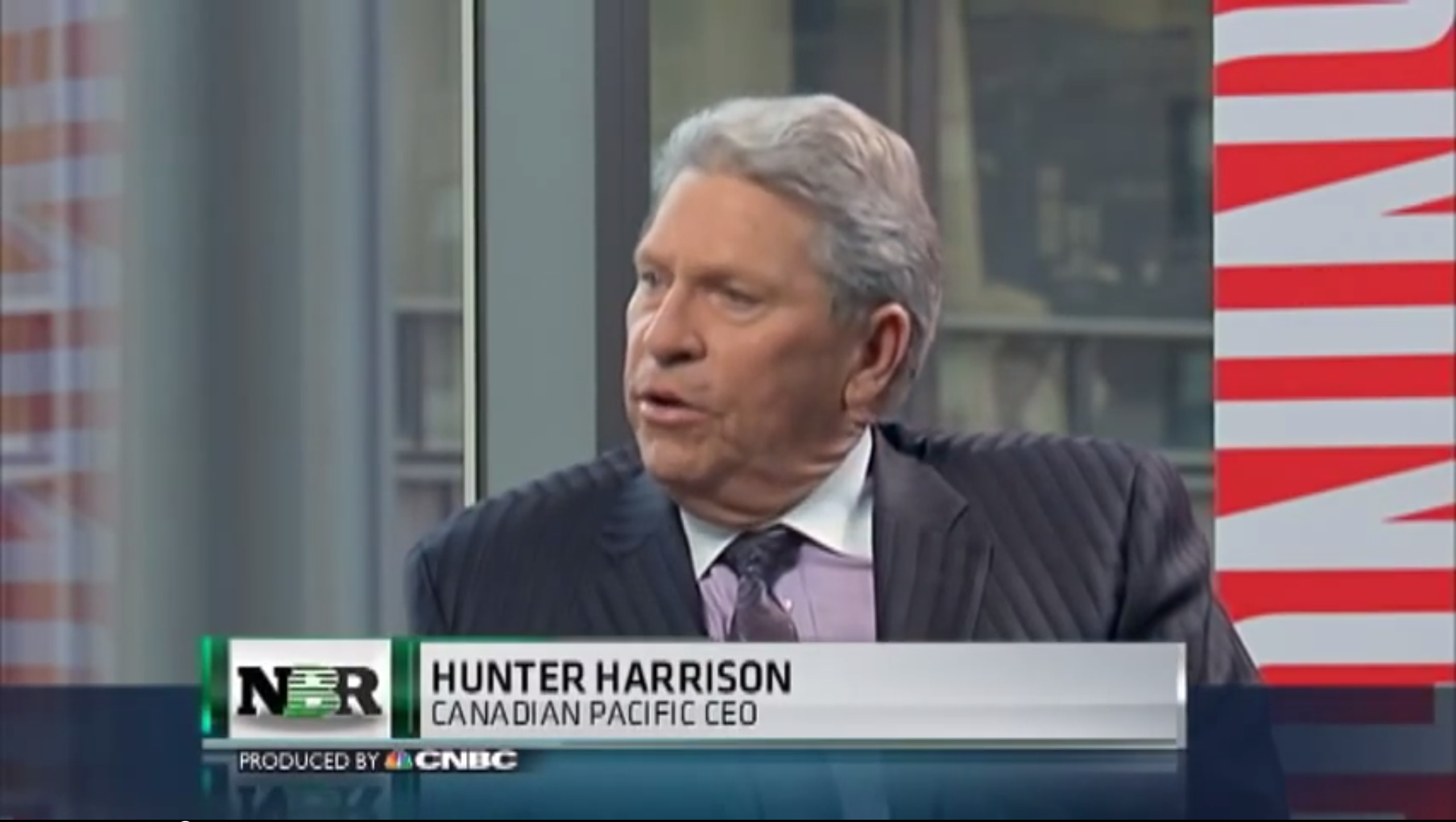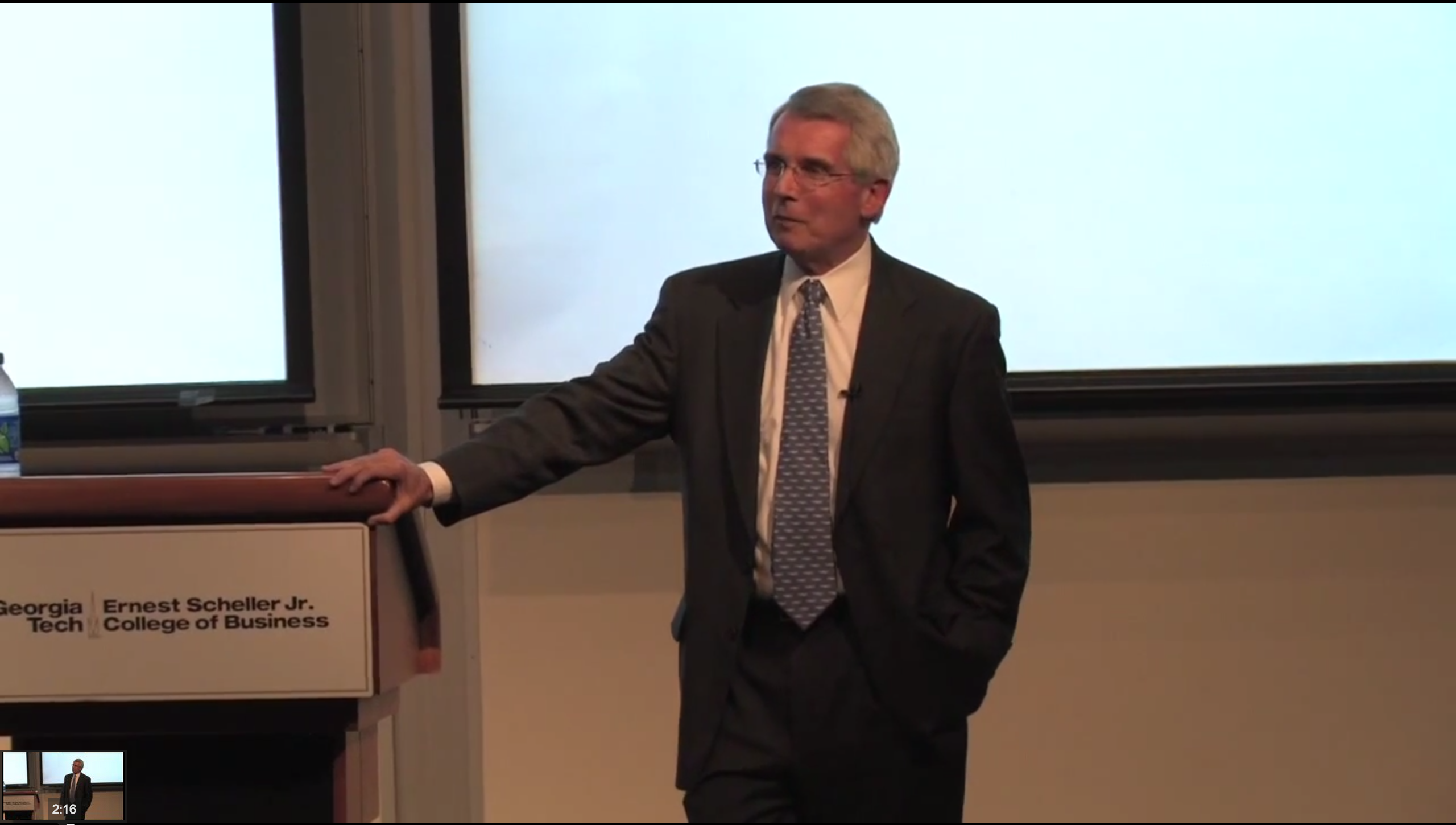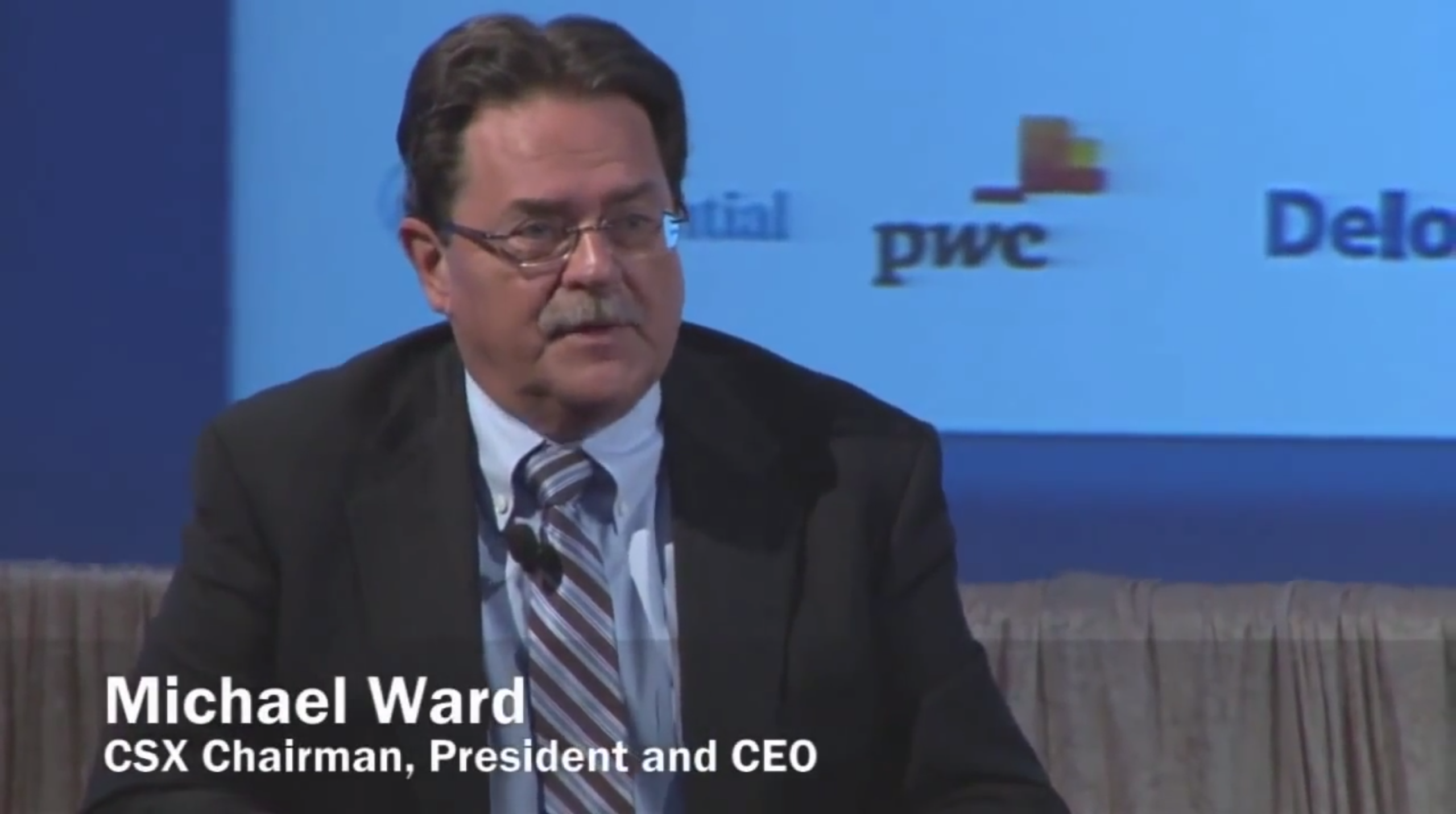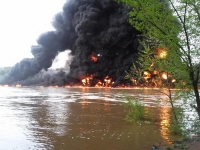Burlington Northern Santa Fe (BNSF) recently said it would proceed with plans to increase speeds for oil-by-rail unit trains in Devil’s Lake, N.D. to 60 MPH from 30 MPH, despite opposition from local officials.
BNSF’s announcement came merely a week after the Obama Administration announced its proposed regulations for trains carrying oil obtained via hydraulic fracturing (“fracking”) from North Dakota’s Bakken Shale basin.
The rail industry’s position on speed limits for “bomb trains” is simple: they continuously claim velocity has nothing to do with oil-by-rail accidents or safety.
For example, Big Rail — as revealed by DeSmogBlog — lobbied against all proposed oil train speed reductions in its dozen or so private meetings at the Obama White House before the unveiling of the proposed oil-by-rail regulations.
Recent statements by rail industry CEOs during investor calls put the heads of many companies on record opposing oil-by-rail speed limits for the first time.
Time is Money
The position of the rail companies regarding speed and safety on their recent quarterly investor calls was consistent, coming just before the release of the new oil-by-rail regulations.
“I don’t know of any incidents with crude that’s being caused by speed. We keep slowing down in this North American network over the years. We don’t get better with speed. We get worse,” E. Hunter Harrison, CEO of Canadian Pacific, stated during the company’s investor call.
E. Hunter Harrison; Photo Credit: YouTube Screenshot
“Now you can’t get growing the country for example, growing the economy, growing the population, and continue to move stuff on rail, cutting the speed back, but don’t want to add any infrastructure. That doesn’t work. That’s a timetable to disaster.”
Charles “Wick” Moorman, CEO of Norfolk Southern and also on Chevron’s Board of Directors, sang a similar tune in response to a query about excessive train speeds potentially causing crude-by-rail accidents.
The question about whether that was the case came from analyst Jason Seidl of Cowen and Company.
“None to my knowledge,” Moorman stated bluntly.
Charles “Wick” Moorman; Photo Credit: YouTube Screenshot
Moorman also argued on the call for a much higher speed limit.
“We’ve had a lot of discussion with the regulators and I believe that we’ll be able to make our case that a minimum speed in the 40 to 45 mile an hour range is…safe,” Moorman continued. “[A]ny significant speed restriction would be in fact disruptive to the point of almost shutting down the North American rail network.”
CSX Corporation — whose oil-by-rail train exploded in Lynchburg, Va. in April — stood in solidarity with its rail industry colleagues on its recent investor call.
“We think [30 MPH speed limits] would…severely limit our ability to provide reliable freight service to our customers,” Michael Ward, chairman, president and CEO of CSX, stated on the company’s call.
Michael Ward; Photo Credit: YouTube Screenshot
“I would hope as we look at this with the federal government, we can show them the modeling of how disastrous that could be to the entire fluidity of the U.S. rail system as well as the adverse impact that will have as trucks deliver on to the highway system. So our view is that it would be very bad, but our view is also that cooler heads will prevail when they see the facts behind it.”
Unmentioned by Ward: CSX’s oil train that exploded in Lynchburg and spilled into the James River was rolling along at 24 MPH, below the 30 MPH limit he advocated against on the call.
April 2014 Lynchburg, Va. oil-by-rail explosion; Photo Credit: Erin Ferrell – ABC 13 News | Twitter
Spokespeople from CSX, Canadian Pacific and Norfolk Southern did not respond to repeated requests for comment from DeSmogBlog.
“Will Cooler Heads Prevail”?
Ward is not the only insider who thinks “cooler heads will prevail” on the issue of oil-by-rail speed limits going forward.
Cowen and Company’s Jason Seidl — also a contributing editor at Railway Age — recently hosted a conference call on the new proposed oil-by-rail regulations. The highlights of that call showed up in an August 7 Railway Age editorial titled, “Will Cooler Heads Prevail?”
“We believe that the final draft of the [Notice of Proposed Rulemaking on High-Hazard Flammable Trains and DOT 111 tank cars] could be more friendly to shippers than the first proposal,” Seidl said in that call, according to Railway Age.
“Dwell Time”
In addition to expectations that the new final regulations will be watered down to make them industry friendly, Seidl introduced the term “dwell time” as the proposed new focus for the rail industry regarding oil train speeds near populated areas.
“The consensus opinion seemed to be that enforcing broad speed restrictions may not be the right approach,” Seidl also stated on the call.
Jason Seidl; Photo Credit: YouTube Screenshot
“The panelists indicated that emphasis should be placed on reducing the total time that High Hazard Flammable Trains (HHFTs) spend in populated areas, and slower trains do just the opposite. Additionally, reduced train speeds would require more cars and detrimentally impact the supply chain, potentially resulting in higher dwell times in populated areas.”
Paraphrased then, speed is not the issue for Big Rail, but the time it takes for the oil train to pass through a community.
“Unsafe at Any Speed”?
However, as previously reported on DeSmogBlog, even rail industry insiders admit speed limits are a major factor for improving rail safety.
Gregory Saxton, chief engineer for rail tank manufacturer Greenbriar, made this clear at a National Transportation Safety Board conference on oil-by-rail safety in April.
“Kinetic energy is related to the square of velocity. So if you double the speed, you have four times as much energy to deal with,” argued Saxton. “Speed is a big deal.”
Cover of “Unsafe at Any Speed”; Photo Credit: Wikimedia Commons
But the CSX oil train explosion in Lynchburg, which involved “safer” CPC-1232 rail cars going only 24 MPH, begs the question asked by Ralph Nader about the auto industry decades ago: is oil-by-rail “unsafe at any speed”?
Photo Credit: Wikimedia Commons
Subscribe to our newsletter
Stay up to date with DeSmog news and alerts













